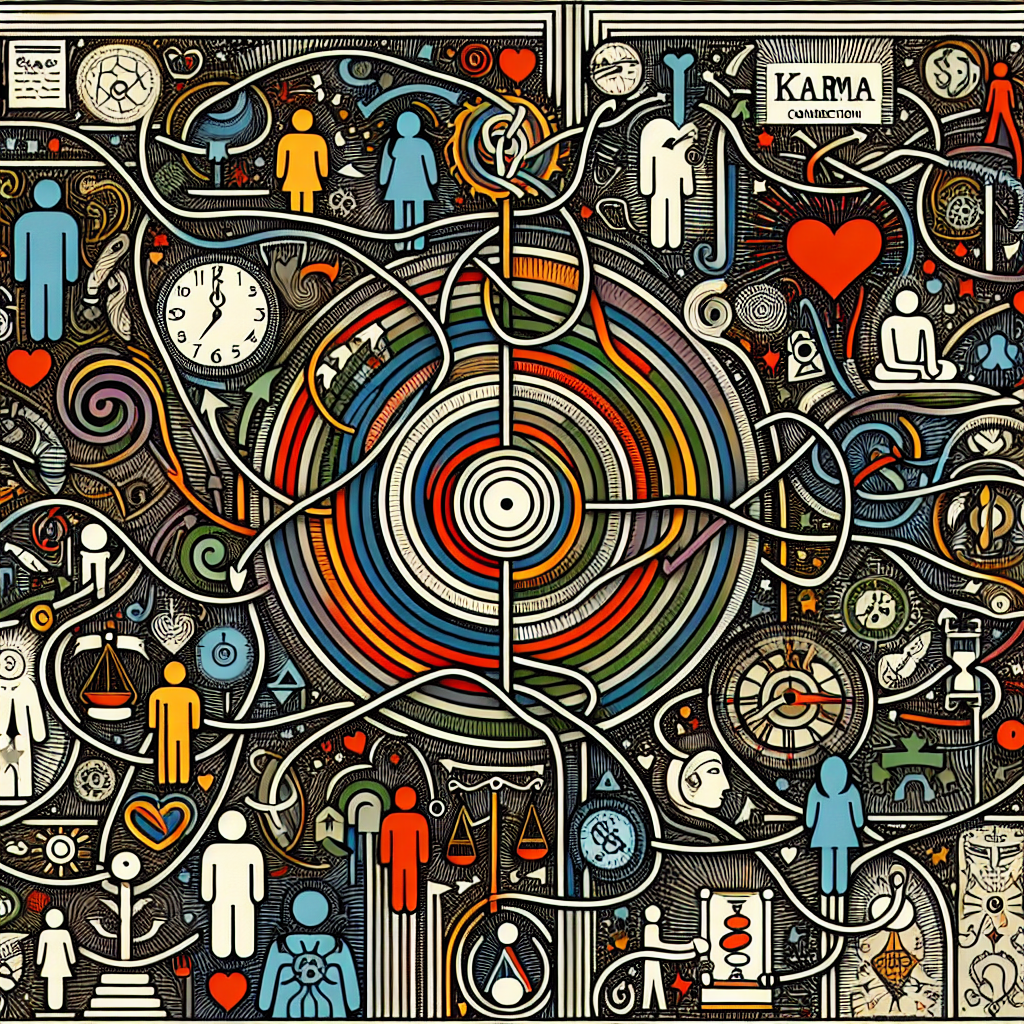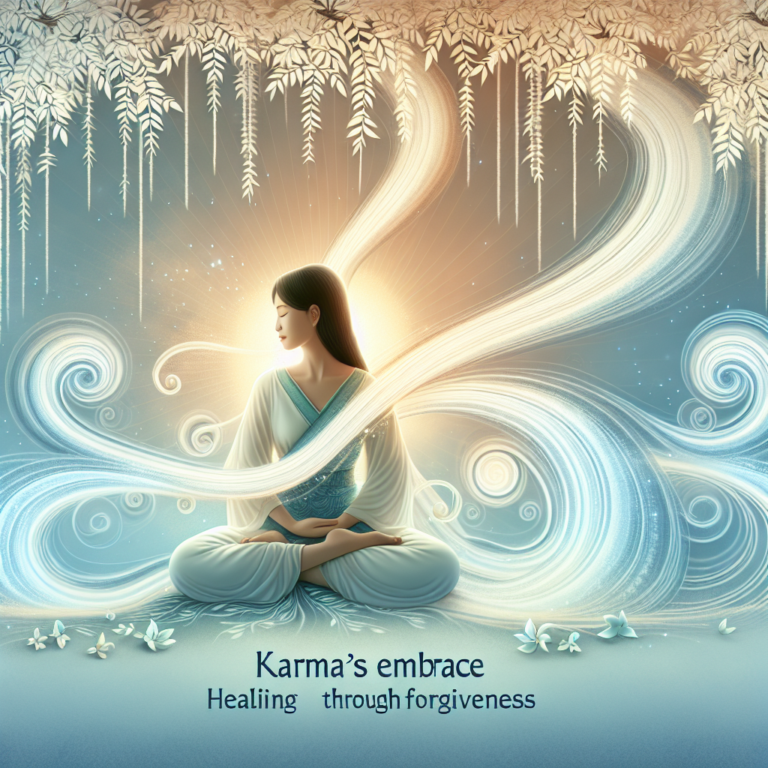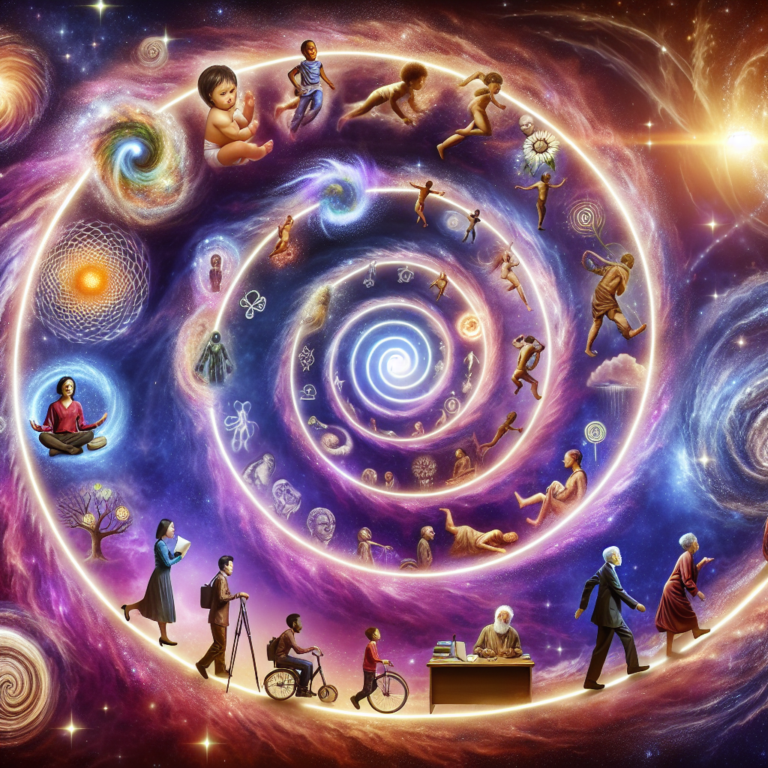Karma, a concept derived from ancient Indian philosophy and prevalent in various spiritual traditions, refers to the principle of cause and effect, where actions (good or bad) influence future events in one’s life. Though often interpreted in a mystical context, karma fundamentally aligns with our everyday experiences and decisions. The idea that our past actions can significantly impact current relationships parallels the ways in which our interactions, choices, and behaviors shape not only our personal lives but also the dynamics of our connections with others.
The Cycle of Relationships and Karma
Every action we take leaves a mark, creating ripples that extend beyond our immediate circumstances. In relationships, this principle can be observed across various dimensions, such as trust, respect, forgiveness, and emotional support. When we engage positively with friends, family, colleagues, or partners, the ripple effect often results in stronger, more meaningful relationships. Conversely, negative actions—like dishonesty, betrayal, or neglect—can lead to a cycle of harm, resulting in difficulties, misunderstandings, and breakdowns in connections.
Case Studies in Relationship Karma
-
Trust and Betrayal: Consider a scenario where one partner in a romantic relationship lies about a significant issue. This betrayal can create a ripple effect, as trust is a cornerstone of intimacy. The partner who was deceived may find it challenging to forgive, leading to emotional distance or even the breakdown of the relationship. The karma here isn’t just about the lie; it’s about how that lie alters the landscape of trust and emotional safety.
-
Generosity and Support: In contrast, a relationship where one friend consistently offers emotional support and kindness reinforces a strong bond. When times are tough, this support often recycles itself as the friend in need is likely to reciprocate in the future, creating a continuous loop of goodwill and understanding. This illustrates how positive karma can enhance the depth and resilience of relationships.
- Conflict and Resolution: Conflict is an inevitable part of human interaction, but how we handle disputes determines our future relational dynamics. When conflicts are addressed with understanding and a willingness to resolve the issue, relationships benefit from growth. However, unresolved conflicts often lead to resentment, straining the connection and paving the way for future conflicts—displaying a cycle of negative karma.
The Role of Self-Awareness
Understanding the karma connection requires a degree of self-awareness. Reflecting on past behaviors can shed light on current interactions. For instance, if someone struggles with maintaining friendships due to seemingly trivial misunderstandings, taking time to analyze their reactions or expectations can reveal deeper patterns rooted in past experiences.
-
Emotional Patterns: Emotional responses developed from childhood or past relationships can influence how we react in current connections. Awareness can challenge recurrent negative patterns and pave the way for healthier relational dynamics.
- Communicative Patterns: People often develop specific communication styles influenced by their past. A history of avoidance in conflict will likely manifest as reluctance to address issues in current relationships, perpetuating a cycle of misunderstanding.
Healing Through Action
To positively influence current relationships and break free from negative cycles, conscious action is crucial. Here are several strategies to consider:
-
Practice Forgiveness: Forgiveness, both for oneself and others, can break the cycle of hurt. It allows for healing and the opportunity to reset the relational dynamic. It doesn’t mean forgetting the past; rather, it involves acknowledging it without allowing it to control present and future interactions.
-
Communicate Openly: Honest and open communication fosters clarity and understanding, essential components of healthy relationships. Sharing feelings, expectations, and boundaries constructively can prevent misunderstandings and the build-up of negative karma.
-
Engage in Self-Reflection: Regularly reflecting on personal behavior and its impact on relationships can illuminate paths to better connections. For instance, assessing how past experiences shape current reactions can help individuals identify areas for growth and improvement.
-
Embrace Empathy: Putting oneself in another’s shoes can foster compassion and understanding. Empathetic actions contribute to positive karmic cycles, where kindness engenders greater kindness.
- Cultivate Gratitude: Practicing gratitude for the people in one’s life can enhance relational satisfaction. Recognizing and appreciating positive qualities in others can create a nurturing environment that fosters stronger bonds.
Conclusion
The karma connection is an immutable aspect of human relationships. Recognizing how past actions shape current circumstances can lead to transformative change, allowing individuals to move forward in a more enlightened and responsible manner. Healthy relationships thrive on awareness, forgiveness, empathy, and communication, while the negative effects of past actions can be mitigated through intentional choices. By embracing these principles, we can cultivate relationships rooted in strength and love, ultimately enriching our lives and those of others.
FAQs
What is karma in the context of relationships?
Karma in relationships refers to the idea that past actions—whether they are positive or negative—affect the current dynamics and experiences within interpersonal connections.
Can I change my relational karma?
Absolutely! By engaging in self-awareness, reflecting on past actions, seeking forgiveness, and actively working toward positive interaction, individuals can change their relational karma.
Why is self-awareness important in understanding relational karma?
Self-awareness allows individuals to recognize patterns in their behavior that may be negatively impacting relationships. Understanding these patterns can help cultivate healthier dynamics and foster growth.
How can I break cycles of negative relational karma?
Breaking negative cycles involves conscious efforts such as acknowledging past mistakes, practicing forgiveness, communicating openly, and engaging in self-reflection to create healthier interactions.
Is relationship karma a one-way street?
Not necessarily. Karma in relationships is often reciprocal. While one person’s actions impact others, those effects can bounce back and affect the original person’s experiences and behaviors in the future.
By understanding the dynamics of karma within relationships, we can navigate our connections with intention, fostering a healthier and more compassionate way of being with ourselves and others.
It seems you’ve entered “Prompt” without any specific context or details. Could you please provide more information or clarify what you’re looking for? Whether it’s a writing prompt, a question, or a topic you’d like to discuss, I’m here to help!, #Karma #Connection #Understanding #Actions #Affect #Current #Relationships, #Karma #Connection #Understanding #Actions #Affect #Current #Relationships, 1734309942, the-karma-connection-understanding-how-past-actions-affect-current-relationships





